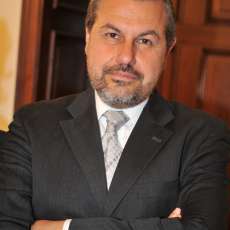Apuron GmbH (formerly Belectric GmbH) was established in 2001, internationally amongst the top 3 global leaders in the installation of solar panels, and the first company to install over 1 GWp in large scale solar parks. Apuron Energy was founded in Romania in 2012 where the group was developing several of the country’s solar parks. APURON Energy now works as an electricity supplier.
Apuron has a rich international history – what is your current presence in Romania and what is your vision for the country’s renewable industry overall, including its associated challenges?
Indeed Apuron is the former Belectric GmbH, one of the world’s pioneers in green energy, and solar in particular. We currently produce solar energy in Romania and supply electricity to residential and industrial consumers and wish to bring transparency, as well as high quality customer service to the sector. Energy security is a matter that we must treat very seriously, negligence in this respect can have worse consequences than an earthquake. In Romania, sadly, before the situation gets dire, things do not really get resolved. If ever we have a blackout, the consequences are severe, so we should work to preempt such situations rather than do damage control.
The renewables industry is the only one where any real investments have been made in the recent past. There have been many feasibility studies performed to modernize and build around the existing national infrastructure (including hydro, gas and nuclear facilities), however, little has been done in terms of actual new developments beyond the planning phase. In this case of diminished initiatives taken from the public side, the natural consequence is an influx of private investors, who decided to invest in the renewables and green industry segments. This allowed the solar and wind sectors to flourish to a point where subsidies are almost becoming unnecessary. We are noticing this trend at Apurony, where projects we had for sale a few years ago received little attention, there is now a clear demand on the rise. The cost of technology in solar, to give you an example, dropped five fold in the past five years. The 13 Ha of land that our operational PV park sits on could now easily host 15 MW instead of the 4.5 MW installed six years ago, and we may be doing a retooling sometime in the future.
What are your views on the way the solar panel program driven by AFM is being implemented?
This program is extremely welcome as a step forward in the adoption of renewables energy. On a macro scale, however, it will not have too large an impact, as it limits the amount of energy that prosumers are allowed to integrate into the grid to 750 MW. Why such a low limit? The sad truth is that the authorities never really opened their arms to renewables. Testament to this is the share allotted to renewables in the 2030 national energy plan, several percentages lower than EU targets. There is also a sense of loss of control playing a part here, in my view. Wherein the more SMEs and entrepreneurs set up shop in the energy sector, the less everyone is dependent on the public, centralized resources.
Energy suppliers in Romania offer different packages to consumers – what would you say is the appetite for green energy in particular and how is Apuron coping with this competitive market?
There is a growing appetite for green energy lately, particularly among industrial consumers. One thing is certain, at this stage we cannot rely solely on green energy as it does not offer a continuous, stable supply of electricity. We as suppliers obtain energy from a mix of different sources, and we can label some of the energy we sell as green as long as we acknowledge our other sources. We are all selling a commodity same as everyone else, but we are differentiating ourselves at Apuron through customer service and other value added services, that often matter much more than a few extra cents to the monthly bill. We are also advising and facilitating industrial clients on how to cut costs, for instance by getting connected directly to the medium voltage grid. This goes beyond our usual duties as an energy supplier but it makes a big difference to the end client and we are happy to do it.
What are your main goals for the next two to three years?
At the moment we are at a crossroads, pending an acquisition from an entity in the renewables industry arena, complementing their existing portfolio currently operating in wind and hydro. Our future plans depend overwhelmingly on this change in ownership, which we feel is a perfect match and will allow us a healthy and substantial growth.






